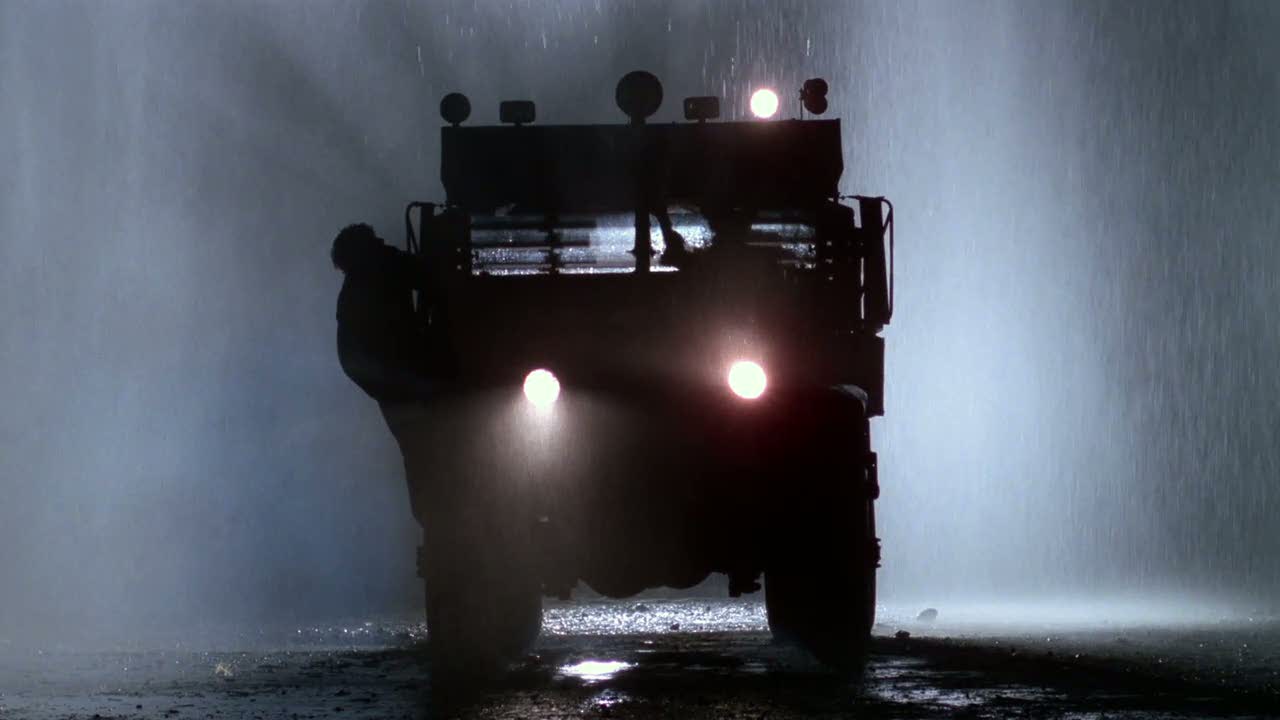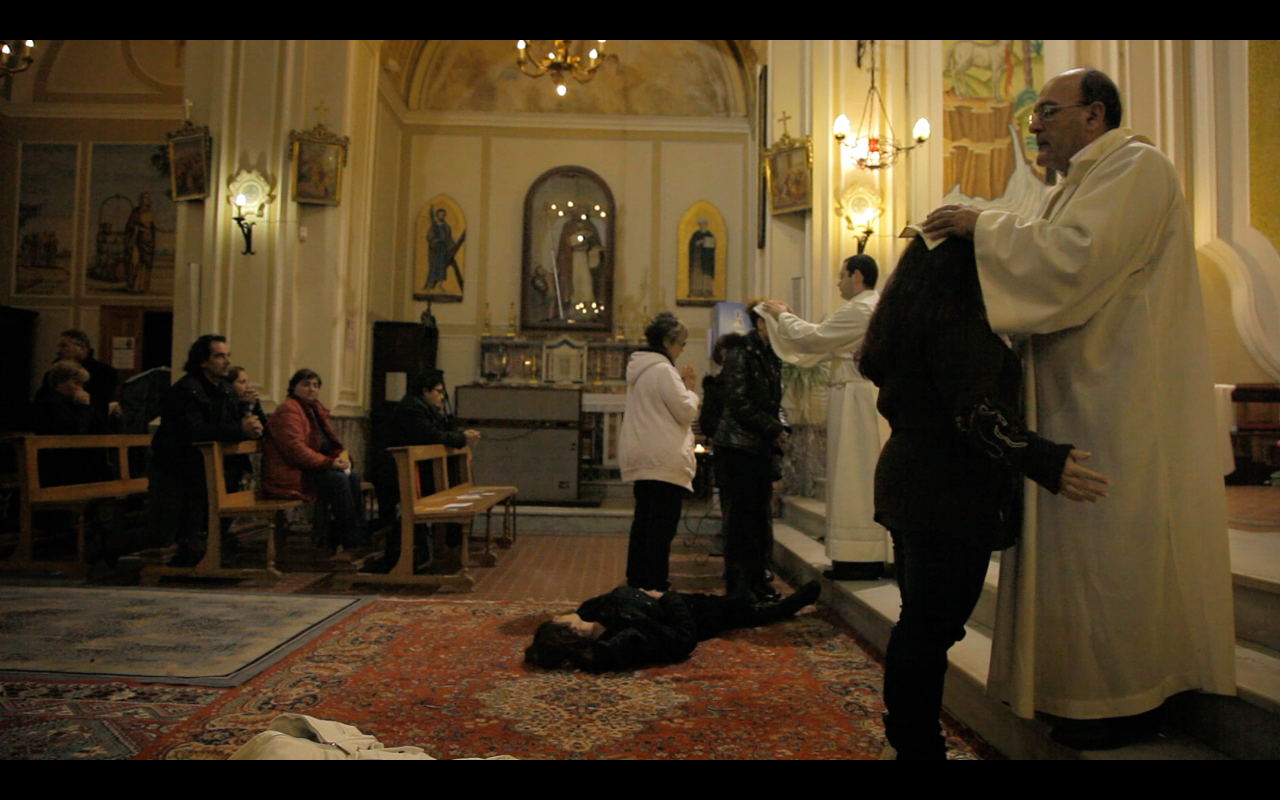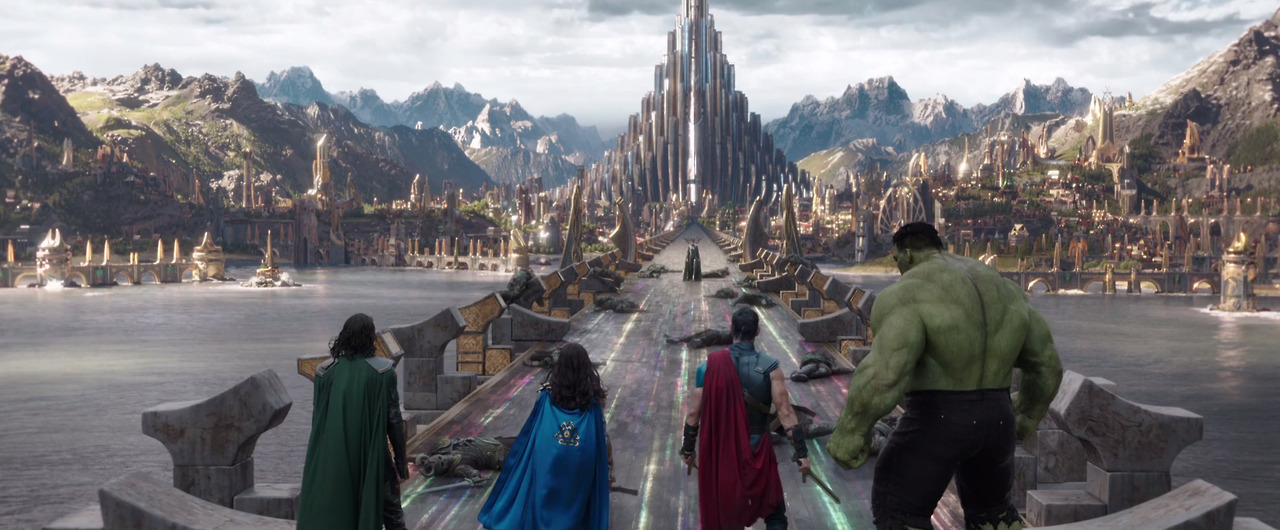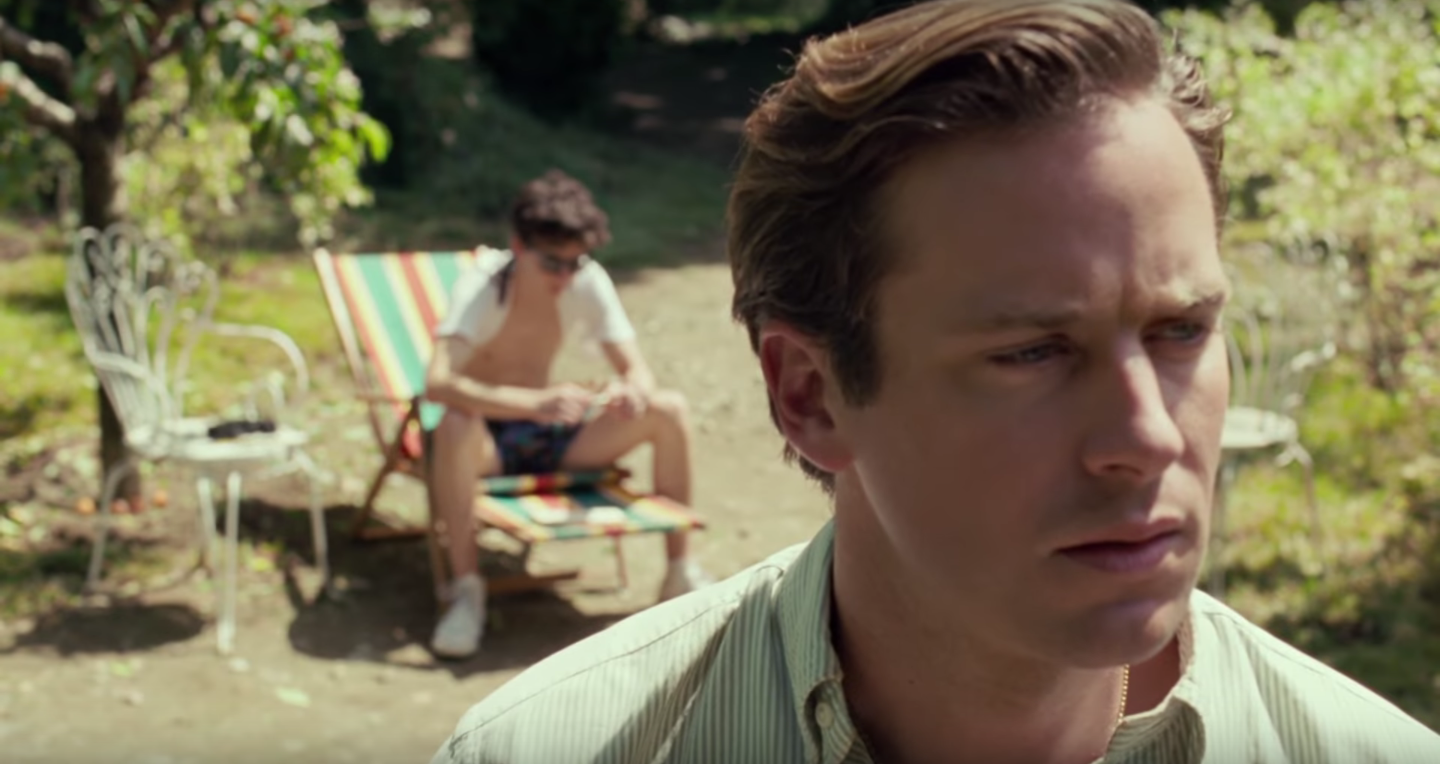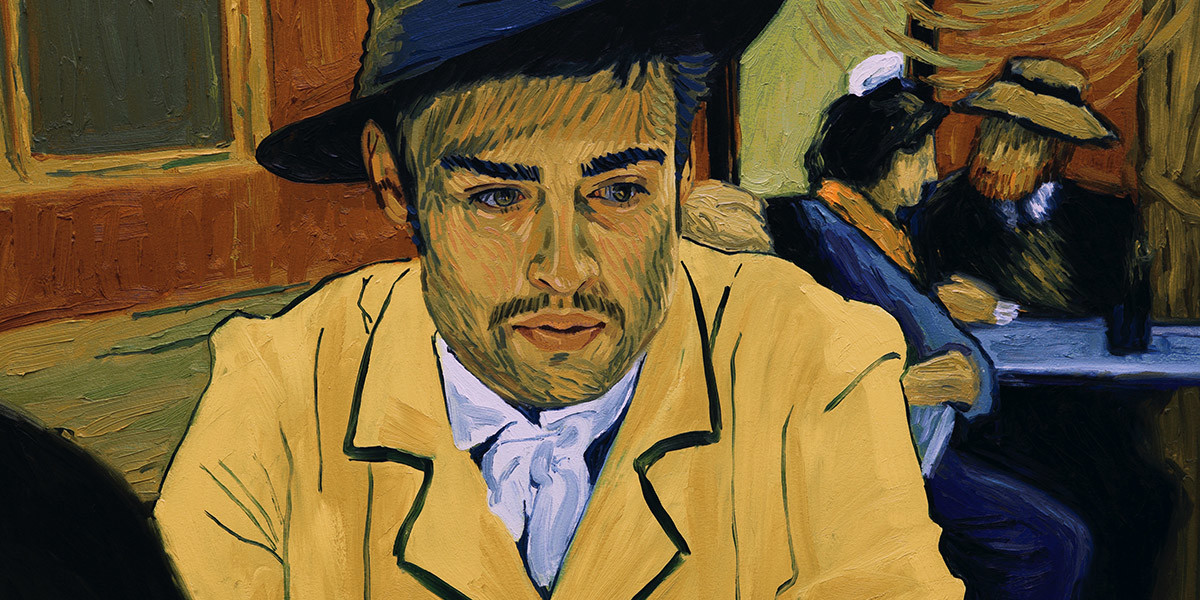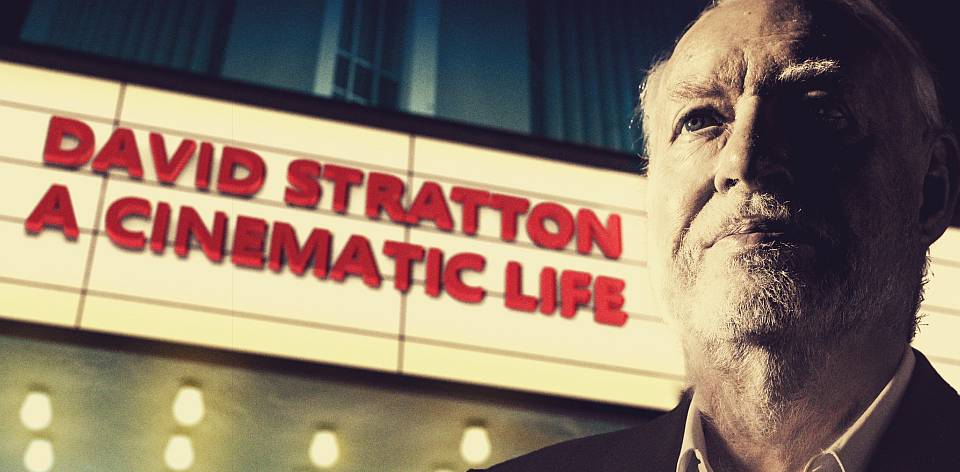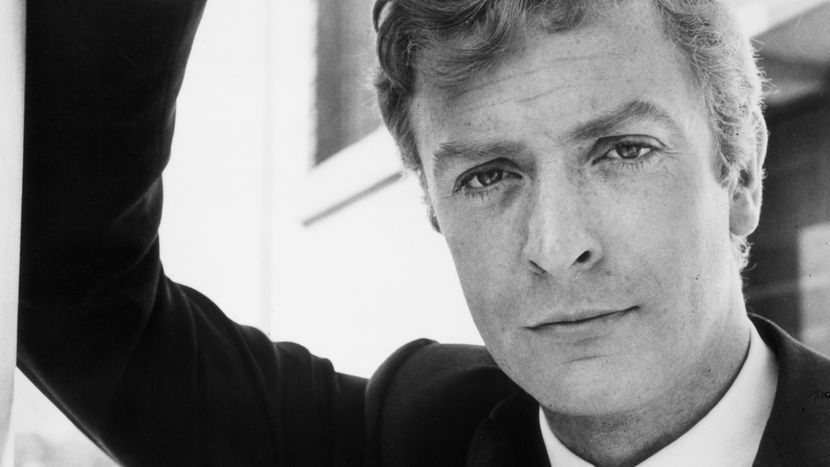In 1977, William Friedkin was riding high from the critical and commercial success of The French Connection and The Exorcist, two of the biggest hits of The Hollywood New Wave. He was about to release Sorcerer, his remake/remodel of Henri-Georges Clouzot’s 1953 thriller, The Wages of Fear, shot on four continents for $22 million. Then Star Wars happened, and George Lucas’ sur-prise blockbuster almost obliterated the taste for brooding films with conflicted anti-heroes. Sorcerer was a flop as was Martin Scorsese’s New York, New York, Sam Peckinpah’s Cross of Iron and John Boorman’s eccentric sequel to Fiendkin’s original, Exorcist II: The Heretic.
Comments closedCategory: Reviews
It is both enlightening and disconcerting to watch a fly-on-the-wall documentary about the metaphysical presence of evil. This observational film follows the Sicilian parish of an internationally sought after exorcist, Father Cataldo, and his flock, who are especially prone to demonic possession. It immerses the viewer in a community of parishioners as each week during mass they writhe in pain and speak in tongues, overtaken by the demonic messengers of Satan in their universal battle with Jesus’ forces of light and goodness.
Comments closedThor: Ragnarok is different in tone to most other movies in the Marvel Cinematic Universe (a mere 27 of these now, if you include slated 2018 releases.) Writers Craig Kyle, Christopher Yost, and Eric Pearson have taken the Avengers canon and somehow wrangled it to sit squarely in a Zucker Abrahams Zucker version of the Norse universe – there is an authentic tone to the gods and demigods despite the absurdity. The dialogue and the screenplay both feel like 90s team-written comedy, from before Friends got lazy, and the sight gags and cartoon comedy are straight out of Naked Gun. (None of this writing team were involved in the Guardians films, which have the tone but deliberate B-movie B-grade authenticity.) There are even jokes in the film about mixing canon from Thor and Avengers.
It is relentlessly entertaining – director Taika Waititi has paced it perfectly, and 130 minutes flies by. The onslaught begins almost immediately with a brilliant example of physical comedy, where Thor (Chris Hemsworth) attempts a serious Confrontation With Evil whilst dangling in mid-air chained up and slowly rotating, as if Inspector Clouseau had achieved the godhead.
Comments closedLet The Sunshine In is an unapologetic meditation on the philosophy of love; the kind of film that French filmmakers seem to be able to do in their sleep. Inspired by rather than adapted from Roland Barthes’ influential A Lover’s Discourse, the free-floating plot tracks the messy love life of Isabelle, an attractive, single artist in her forties, played with an effortless blend of intelligence and sensuality by Juliette Binoche. As is often the case in real life, Isabelle seems so much better than the men in her romantic orbit. Yet her passion, idealism and loneliness yield to the gravitational pull of a group of suitors that run the gamut from harmless fantasists to indecisive or emotionally disconnected jerks. The most egregious offender is Vincent, who bears a strong resemblance to a recently disgraced studio head. When Isabelle eventually tunes this narcissistic banker with artistic pretensions out, most members of the audience will cheer.
Comments closedBiography is difficult. It’s tough to fit a life history and useful insight into the subject’s character into 90-odd minutes, and too often films about creatives are simply too long. Loving Vincent neatly solves this problem by wrapping the storytelling around van Gogh’s work itself, capturing both very neatly, and then turning the whole result into a living, breathing painting, put together by a hundred artists working over two years to create 65,000 frames. It took directors Dorota Kobiela and Hugh Welchman four years of development just to figure out how to make that work, but it really paid off.
Van Gogh is famous for his character flaws, and the film uses and deals with them all to great effect. It cleverly dispenses with the ear thing REALLY early, and gets a few laughs out of it too, neatly avoiding the potential distraction. Aside from the utterly unconventional presentation, the film is essentially neo-Noir, framing the storytelling through the eyes of a close friend’s son, Armand Roulin (Douglas Booth).
Comments closedDavid Stratton: A Cinematic Life is a simple idea superbly executed: tell the history of Australian cinema through eyes of a man who is arguably its most famous critic. Sally Aitken’s film is a fascinating portrait of one man’s passion for film, a love letter to his adopted country (Stratton was born into a conservative middle-class family in Trowbridge, Wiltshire).and how a national cinema gained maturity and global acclaim.
Comments closedMy Generation is Michael Caine’s personal take on the swinging sixties; the decade that brought fame and success for many working-class upstarts in the world of film, music, fashion and the visual arts. As one of the film’s producers, Caine works with documentarian David Batty and screenwriters Ian La Frenais and Dick Clement to weave a portrait of a decade for which the term “unreliable narrator” seems to have been invented.
Comments closed